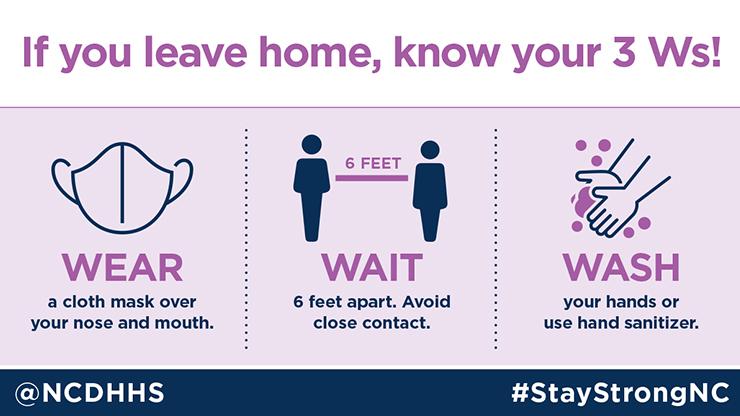GHS Cares: Preparing for Flu Season
It is November and flu season is upon us!
Seasonal flu viruses are present year-round but they are most common in the fall and winter months. The seasonal flu viruses spread easily from person to person. Below are five tips to decrease your risk of contracting the flu, as well as other viruses, this year.
Seasonal Flu Prevention Tips:
- Get the flu shot. The most important precaution you can take to prevent the flu is for you and your family members to get the flu vaccine each year. While there are many different strains of the flu virus, the flu vaccine protects against those that scientists think will be the most common during that flu season. It is recommended that everyone 6 months of age and older get the flu vaccine. Children under 5 years of age, and especially under 2 years, along with those who have medical conditions such as asthma, are considered to be at higher risk of developing serious flu-related problems.
- Avoid contact with sick people, and limit contact with others while sick. If you are experiencing any flu-like symptoms, stay home from all activities for at least 24 hours after symptoms are gone, with the exception of seeking medical treatment.
- Cover your mouth and avoid touching your face. Have tissues readily accessible to cover your nose and mouth when sneezing or coughing. Cough or sneeze into the inside of your elbow if there is not a tissue available. Keeping your hands away from your mouth, nose, and eyes will also help.
- Clean surfaces. Try to keep frequently touched surfaces and objects (desks, faucets, phones, etc.) clean and disinfected. The flu virus can live on surfaces for up to 48 hours.
- Remember the 3 W’s: While the 3 W’s are responses to helping reduce the spread of COVID-19, they are applicable to helping reduce the spread of the seasonal flu virus as well!

Anyone can contract the seasonal flu virus, but you lower the risk by following these tips. Should you suddenly begin to experience flu-like symptoms (fever, chills, body aches, headaches, fatigue, cough, sore throat, runny/stuffy nose), you see a doctor. There are many other viruses that can cause symptoms similar to the seasonal flu, especially COVID-19, so it is important to see a doctor as soon as possible so that they can administer a flu test and begin treatment, if needed.

